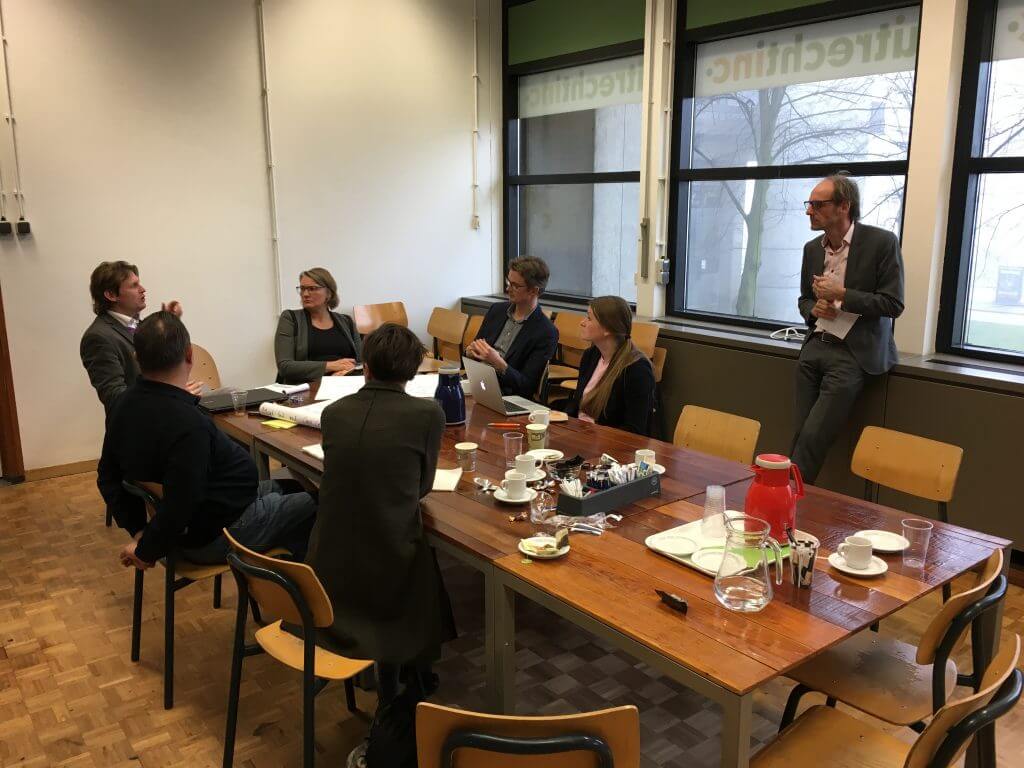As cities grapple with transforming and adapting to meet...
All around the globe, cities and regions are driving...
Running from November 28 to December 2, the activities...
The Culture and Creative Sector Industries (CCSI) can play...
In order to reach net zero by 2030, or...
Gipuzkoa is taking action towards sustainability through collaboration with...
Much of the discussion around COP27 this year has...
The European Green Deal represents a unique opportunity for...
Audrey S-Darko is a researcher and a farmer from...
As the official COP27 outcomes are being drafted this...
Massamba Thioye is leading the UN climate change Global...
The Climate-KIC International Foundation is looking for a Supervisory...
Climate start-ups supported by EIT Climate-KIC are now worth...
Slovenia’s ministry of higher education is gearing up for...
EIT Climate-KIC launches the Post Coal Future Lab initiative...
“What does it mean to enable businesses to deal...
“Beautiful, Sustainable, Together”. These are the values – and...
The intersection of climate and innovation remains a male-dominated...
A broad survey, possible solutions displayed on screens, inspirational...
Climate-focused start-up teams in developing countries face distinct challenges...
EIT Community New European Bauhaus partners will be hosting...
Slovenia has decided to actively combat climate change by...
The European Institute of Innovation and Technology (EIT) has...
The City Council of Milan approved the Air and...
Three innovators from EIT Climate-KIC’s community have been nominated...
On Monday 13 June, the representatives of the 100...
Climate smart forest economies It’s a crucial decade for...
Scotland’s largest city region is actively tackling climate change...
EIT Climate-KIC and Built by Nature, announce an initiative...
EIT Climate-KIC is launching Circularity Thinking courses to tackle...


 The Paris Agreement on Climate Change requires huge steps to be taken in the built environment. One of the key focus areas in this respect is large scale upgrading of the energetic performance of existing housing stock. In the Netherlands alone around 6 million houses and utility buildings need to be deeply retrofitted to make them energy neutral or even energy producing by 2050 (if possible and preferably before that). Whereas we quickly need to move toward a yearly volume of 200,000 houses to be deep-retrofitted and despite high ambitions at the level of local and regional authorities, most “zero-at-the-meter” renovation initiatives remain stuck at the pilot or experimentation phase.
The Paris Agreement on Climate Change requires huge steps to be taken in the built environment. One of the key focus areas in this respect is large scale upgrading of the energetic performance of existing housing stock. In the Netherlands alone around 6 million houses and utility buildings need to be deeply retrofitted to make them energy neutral or even energy producing by 2050 (if possible and preferably before that). Whereas we quickly need to move toward a yearly volume of 200,000 houses to be deep-retrofitted and despite high ambitions at the level of local and regional authorities, most “zero-at-the-meter” renovation initiatives remain stuck at the pilot or experimentation phase.